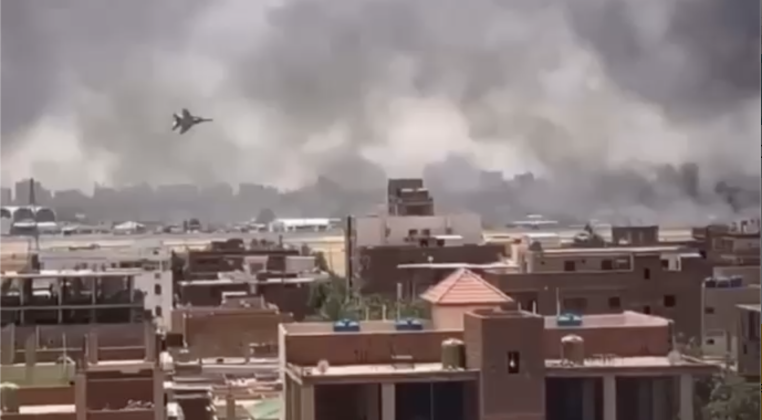On April 15 MiG-29 Fulcrum fourth generation fighter aircraft were filmed operating over the Sudanese capital Khartoum and firing air to surface missiles, as part of a much larger air campaign by the Sudanese Military aimed at countering the Rapid Intervention Forces (RIF) militia group. Having acquired the aircraft from 2003-2004, Sudan is one of five African countries to operate the MiG-29, with neighbouring Eritrea, Egypt and Libya as well as nearby Algeria all relying heavily on the class. Although designed primarily for air to air combat, the Sudanese MiGs have taken part in counterinsurgency efforts in the past against a range of Western backed militia groups, and provide complementary capabilities to the much longer ranged Su-24M dedicated strike fighters acquired from Belarus from 2014-2016. The aircraft were seen flying low in what appeared to be efforts to intimidate militia groups. Air power remains a key advantage the Sudanese Military holds over other armed parties in the country, with Su-24Ms in 2020 having been temporarily stationed in the capital Khartoum and flown over militia groups near the capital in what was also seen as a major show of force. The Sudanese Air Force is considered one of the most capable in Africa, with its rotary wing combat aviation capabilities being particularly outstanding on the continent and having been used extensively to intimidate militias in recent clashes.

The outbreak of hostilities between the military and the RIF has been anticipated since near the beginning of the year due to the emergence of increasingly irreconcilable differences between the military leadership and the militia group, both of which have played central roles in governing the country since a Western backed military coup overthrew the country’s longstanding leader President Omar Al Bashir in April 2019. The end of Bashir’s leadership, which has been followed by renewed Western efforts to have him extradited to the Netherlands, issued in an area of severe economic and political instability as living standards collapsed. The following transitional government implemented Western initiatives for economic reform which have resulted in the closure of the large majority of factories in the country and a collapse in its agricultural output, resulting in extreme poverty and reduced stability. Sudan under Al Bashir was a longstanding adversary of Western interests in the region, having had close security ties with Ba’athist Iraq, Algeria, Syria, Russia, China, North Korea, and formerly Iran, among other states outside the Western sphere of influence. Its defence sector has reportedly produced North Korean guided air to surface weapons under license, which may well be being used at present. With the military having maintained a number of its partnerships with Western adversaries, it has increasingly been seen as the primary opponent of Western interests in the country since the violent toppling of the president and his administration four years ago.
